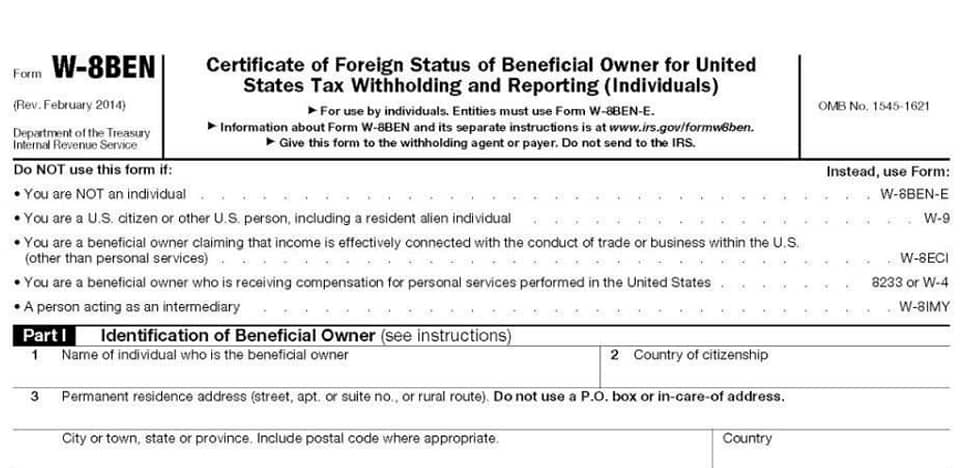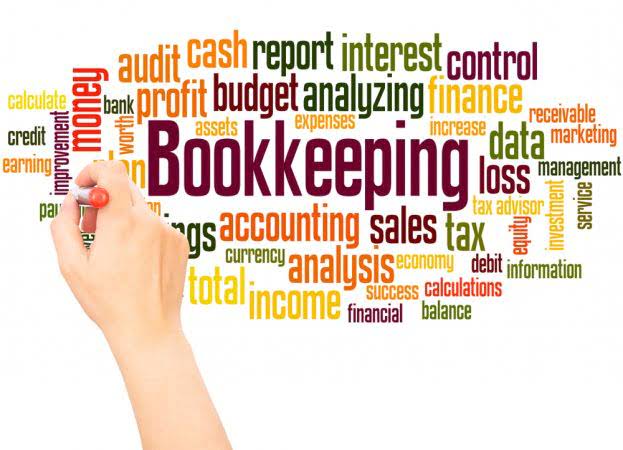Content
The findings from accounts receivable aging reports may be improved in various ways. First, accounts receivable are derivations of the extension of credit. If a company experiences difficulty collecting accounts, as evidenced by the accounts receivable aging report, problem customers may be required to do business on a cash-only basis. Therefore, the aging report is helpful in laying out credit and selling practices. Get Moon Invoice online accounting software to generate invoice aging reports from 0-90 days. Also, you can alter your invoice aging schedule as per your business’s credit policy with the Moon Invoice app. Connect with our sales and support team for more information on managing your business accounts using Moon Invoice reports.
Finally, use your collections system to determine how you’ll contact all customers with bills 30 days or more overdue. You’re probably using the accrual accounting methodas opposed to cash accounting if your business has a fair number of customers who don’t pay immediately. This accounting methid is used to match income and expenses in the correct year. With accrual accounting, you can include a receivable amount in gross income for the tax year if you can establish your right to receive the money and the amount, with an invoice, for example. Maybe the invoice got lost in the mail or perhaps the customer fell upon financial hardship and isn’t able to pay you as promised. Occasionally, a customer will withhold payment because they are dissatisfied with the product or service you sold to them.
What Are The Benefits Of Using An Ap Aging Report?
With the A/R aging report template provided by HighRadius your collectors can get to know whom to contact first with the help of an auto-generated prioritized worklist. HighRadius also provides automation enabled free A/R aging software which can help you to further optimize your day-to-day collections activities. A receivable aging report, also known as an accounts receivable aging report, summarizes all receivables from customers at any time. In addition, the report categorizes all outstanding receivables from all customers into various aging categories based on the number of days since the invoices were issued. Accounts payable, otherwise known as AP, represent the money you spend to operate your business. They typically go to pay vendors and suppliers weekly, monthly, quarterly or annually. Most small business owners worry about their cash going in and cash going out, giving little thought to how much they pay over time.
How do I calculate Ageing days in Excel?
Simply by subtracting the birth date from the current date. This conventional age formula can also be used in Excel. The first part of the formula (TODAY()-B2) returns the difference between the current date and date of birth is days, and then you divide that number by 365 to get the numbers of years.
Collections Cloud auto-prioritizes customers and recommends the action plan for each customer. And unlike Freshbooks on this list, Quickbooks is a full accounting software. However, also unlike Freshbooks and Xero, fees for using the Quickbooks software grow as your business grows and can become quite steep. You can create aging reports in a simple Excel spreadsheet, although this may take you a while. Creating payment plans that better suit the financial needs of your customers helps ensure you’re paid more consistently.
Calculate The Total Amount Past Due
FWS has multiple centers to provide timely services to global clients within a short time. Also, depending on the client requirements we deploy offshore and online experts to deliver the AR reports within the short span. On the above Aging report, we see a couple of entries with negative signs. Either they erroneously over paid, or they were issued a credit memo that they didn’t take. You can apply those credits to any open balances in that customer’s account. When you get this report from your controller services, you can identify which specific items need attention and identify broader trends.
He then taught tax and accounting to undergraduate and graduate students as an assistant professor at both the University of Nebraska-Omaha and Mississippi State University. Tim is a Certified QuickBooks Time Pro, QuickBooks ProAdvisor for both the Online and Desktop products, as well as a CPA with 25 years of experience. He most recently spent two years as the accountant at a commercial roofing company utilizing QuickBooks Desktop to compile financials, job cost, and run payroll.
How Does Accounts Receivable Aging Work?
For example, if you generate the report for June 30 and have an invoice with a due date as June 24, then it will be presented in the “1 – 15 days” column of the report. What you can infer from this is, the balance is due within 15 days and must be collected before July 8. The end goal is to collect more payments when they are due, and estimate which customers are consistently running late with their payments. Aging reports show you which clients to sever ties with to prevent losses. For example, you can let go of clients who continually fail or struggle to pay their invoices.
For small business owners, your accounts receivables are usually in the form of customer debts. An accounts receivable aging report tells you how long an invoice has been due for payment.
What Goes On An Accounts Receivable Aging Report?
To view the report for a particular customer, enter their company name or reference in the Type to search box. By organizing your How to Prepare Accounts Receivable Aging Reports? nonpaying customer into different time brackets, you can easily see the oldest pending payments that need to be collected first.
- Those are the ones from whom you have the most difficulty collecting your money.
- In an ideal world, customers would always be current on their obligations.
- Given its use as a collection tool, the report may be configured to also contain contact information for each customer.
- However, if your collection period is high, then your aging report will show more overdue accounts.
- Of course, these are suggestions; most businesses will find it easier to work in 30-day increments.
A collections team can use the accounts receivable aging report to review how long an invoice has gone unpaid as well as the balance of all unpaid services. Another benefit of the accounts payable aging report is a better understanding of your vendors and suppliers. That may not be as important to a large national company with a lot of buying power, but for small businesses, it can be vital. Through the aging report, you can identify vendors who will give you breaks if you pay early, those who don’t mind if you are late, and the ones who are willing to negotiate better terms. Many small business owners only focus on cash coming in and cash coming out, which doesn’t give them the full picture. The accounts payable aging report provides a broader view of your cash flow over time. Typically, the longer your debts remain uncollected, the chances of them going uncollected forever will keep increasing.
Taking Customers To Collections
FWS consists of highly talented AR specialists, managers, quality assurers, etc. who are well capable of rendering international accounts receivable analysis report without any error. All of our reports are created after multiple quality checks which ensure that we provide more than 99% accurate services. Those are the ones from whom you have the most difficulty collecting your money. When you can identify https://personal-accounting.org/ them, then you can do something about it – add late fees, send collection letters, make phone calls, even take them to court. You may also decide that anyone who pays you that slowly is not worth having as a customer. If a customer is paying their balance late on a regular basis, your business can evaluate whether to sever ties with that customer altogether, or to reevaluate their payment terms.
In our sample report above, we notice that one of our customers, Aaron E Bernahu, has several outstanding invoices that are 30 days past due, more than 30 days past due, and more than 90 days past due. Given this information, we should strengthen our collection requests to Aaron E Bernahu because of his unpaid accounts. We can also use the information in the detailed report when sending a payment reminder for past due accounts. All the unpaid invoices, along with the complete customer details, will be listed out in aging reports, giving you a good overview of the actual health of your receivables and cash flow. For example, if you have outstanding invoices for more than days, you may need more rigor in your collection efforts.
Starting from $99 and includes 6 months FREE Registered Agent services. All aforementioned reports are meticulously documented and sent through secured channels to the clients. Our support staff and a dedicated manager are available 24/7 to assist you with any concerns in regard to the final report. Especially at the end of your fiscal year, you want to determine which receivables will never be collected. But if you report on an accrual basis, at least you can write it off to Bad Debt Expense. Finally, the company’s auditors may use the report to select invoices for which they want to issue confirmations as part of their year-end audit activities.
Keep reading to learn all about aging of AR and how it can help your business. The amount receivable from the debtors is known as accounts receivable, whereas the amount payable by the business owner to the creditor is known as accounts payable in business accounting. Your AR aging report could also contain credit memos that customers have yet to use or which you have not matched against unpaid invoices. Then, create a list of your clients with outstanding invoice balances. The aging of accounts payable is based on the dates that the vendors’ invoices are to be paid.
Alter Your Credit Policies
For example, you can compare historical customer interactions, their past due payments, and how much bad debt they have contributed to see if you need to revise the allowances you make. If you use an invoicing solution, features like aging reports in QuickBooks help organize the available open invoice data in an intuitive and easy-to-understand manner. You can configure the aging schedule, easily perform search, filter, and ordering operations to get a comprehensive view of all aging report information. A 2020 survey from Atradius has shown that 32% more businesses find it difficult to pay their suppliers every year because their customers won’t pay them on time.
What is ageing in accounting?
Aging is a method used by accountants and investors to evaluate and identify any irregularities within a company’s accounts receivables (ARs). Outstanding customer invoices and credit memos are categorized by date ranges, typically of 30 days, to determine how long a bill has gone unpaid.
With that in mind, here’s an example of an AP aging report from QuickBooks. You can easily upload invoices, customize fields and set alerts when bills come due. It can integrate with your other financial data to give you a comprehensive view of your cash flow now and in the future.
How To Prepare An Ar Aging Report
Accounts payable aging reports and accounts receivable aging reports are similar in that they give you a visual of what is due now and what is coming due. The only difference is that the accounts payable aging report focuses on what you owe and the accounts receivable aging report is concerned with what is owed to you. The report should include details about the amount owed, when it is due, how late the payment is, and what discounts you are offering for a faster payment. It helps you organize, visualize, and account for the amounts you owe. Typically, an accounts payable aging report includes vendor names and how much money you owe, each arranged in time buckets to help you determine overdue invoices for payment. When preparing an AR aging report, you require your customers’ names, outstanding balance amounts, and aging schedules.
- Finding the right balance between grace periods and service restrictions is easier with regular collections reporting.
- Nowadays, it’s generally much easier to use a software like Quickbooks to generate account reports such as an A/R aging report.
- We specialize in unifying and optimizing processes to deliver a real-time and accurate view of your financial position.
- This article is for small business owners who want to learn more about the accounts payable aging report.
The first step in the aging process is to list each item in an account, such as all of your outstanding invoices in accounts receivable. Using 30-day intervals is common, so an accounts receivable aging report would have one column with all invoices you issued in the last 30 days, all invoices issued days ago and so on. With manual efforts, generating the A/R aging report from all these data gets complicated and the collectors lack visibility on the at-risk customers who are supposed to be contacted at first.
Companies will use the information on an accounts receivable aging report to create collection letters to send to customers with overdue balances. Accounts receivable aging reports may be mailed to customers along with the month-end statement or a collection letter that provides a detailed account of outstanding items. Therefore, an accounts receivable aging report may be utilized by internal as well as external individuals. While using the best accounting software for businesses, you can download an invoice aging report that helps list customers’ names and their invoices due for payment. If the list of the payments exceeds your debt ratio, then there arises a need to revise the existing credit policy.




